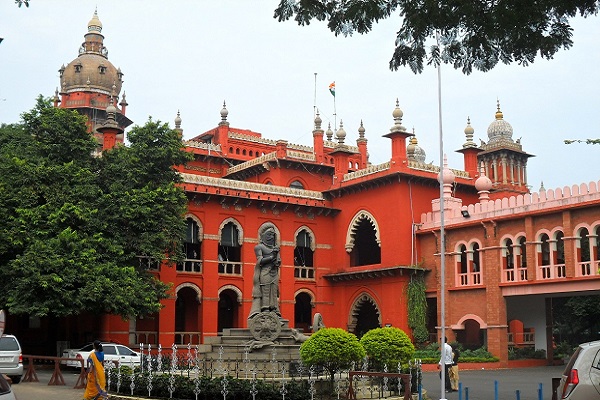
MADRAS High Court has set aside a Judgment delivered by District and Sessions Judge No.II, Kancheepuram observing that the impugned judgment is a classic example as to how a Court of Law in this Country should not pen down a judgment.
A division bench of Justices Nagamuthu and N.Seshsayee was hearing an appeal filed by convicts against the trial Court Judgment by which the Court convicted all the five accused under all the three charges and sentenced them to undergo rigorous imprisonment for ten years and pay a fine of Rs.1000/- each in default to undergo rigorous imprisonment for one year for the offence under Section 450 I.P.C.; to undergo imprisonment for life and pay a fine of Rs.1000/- each in default to undergo rigorous imprisonment for one year for offence under Section 397 I.P.C. and to undergo imprisonment for life and pay a fine of Rs.1000/- each in default to undergo rigorous imprisonment for one year for offence under Section 302 I.P.C.
According to the High Court, ‘curiously, at the same time, shockingly the trial Court has convicted all the accused not on any legal ground but on mere surmises. It also observed that simply because these accused belonged to a particular community the trial Court has concluded that they would have committed the crime as according to the trial Court, the traditional occupation of the people belonging to that community was theft’.
The trial Court has extracted the alleged confession statement of all the accused in full ignoring the bar contained in Section 25 of the Evidence Act and has concluded that the accused 3 to 5 held the deceased and accused 2 attacked the deceased with a wooden rod and the first accused attacked the deceased with crowbar.
Justice Nagamuthu, who wrote the judgment, said the above extractions from the trial court judgment would go a long way to expose the prejudice the learned trial Judge had against the people belonging to a particular community.
“In our little experience, we have not come across this kind of worst judgment. Let this be the last judgment ever written on communal consideration”, said the Bench.
COURTESY: LIVELAW NEWS NETWORK

